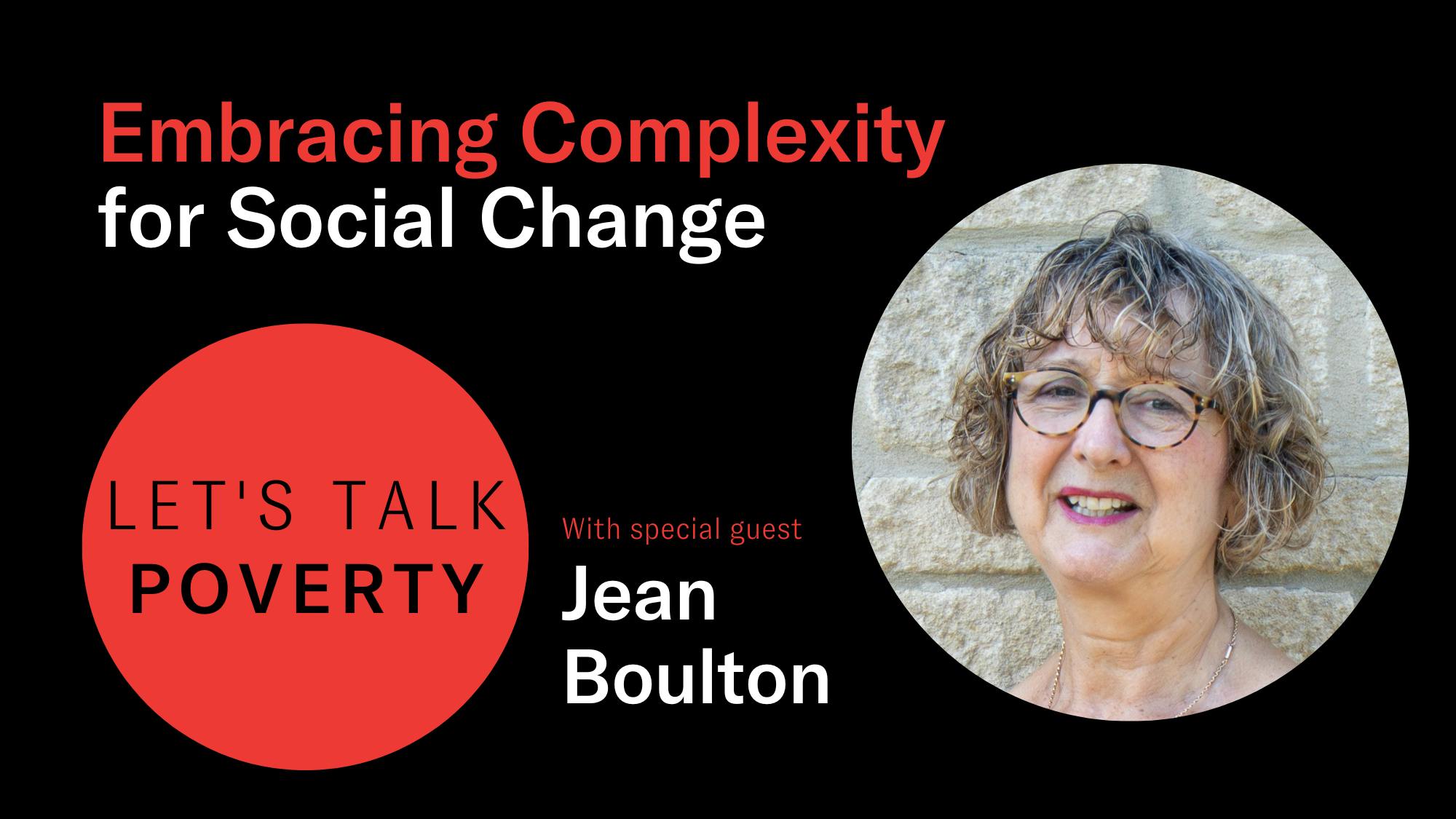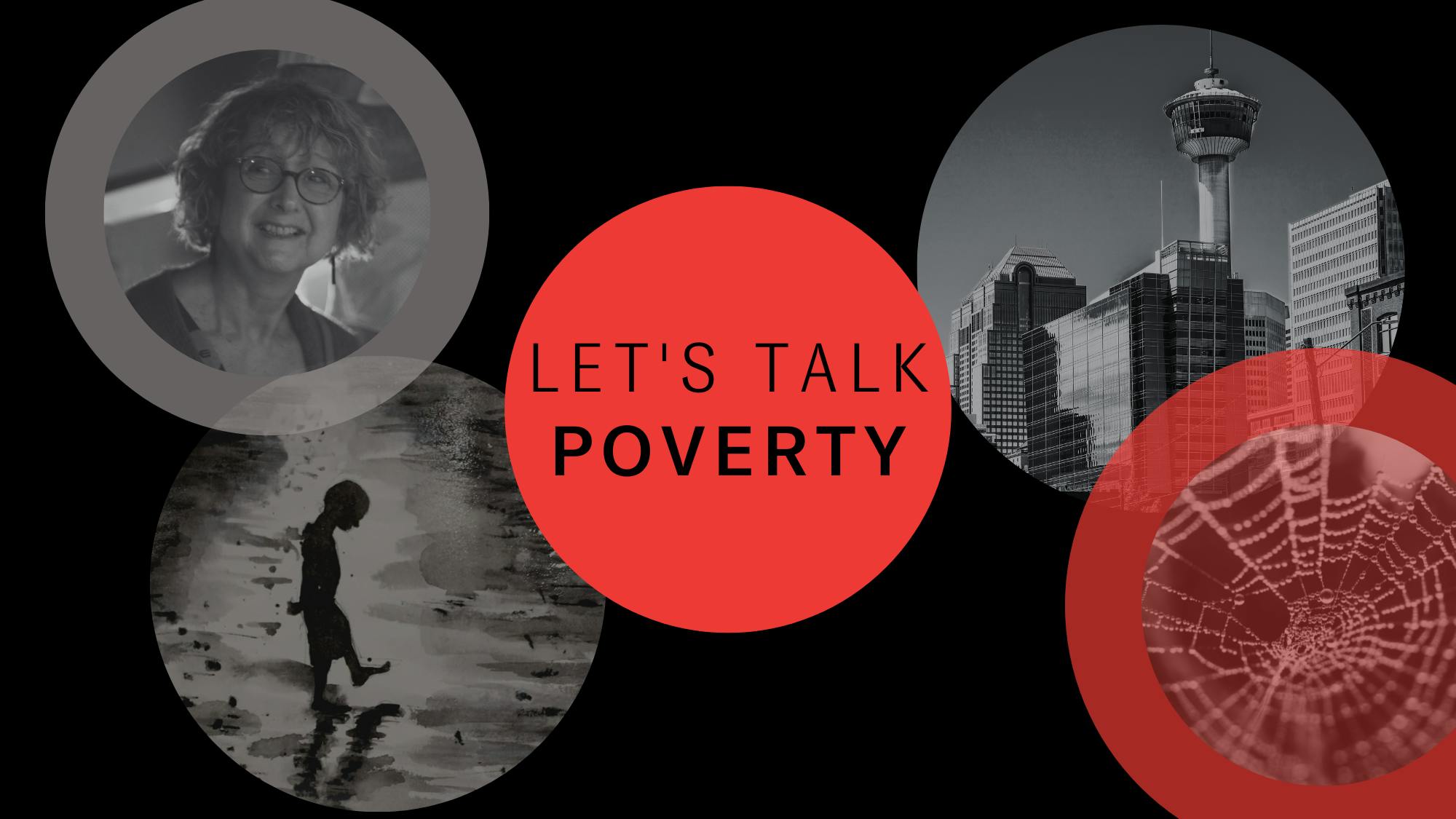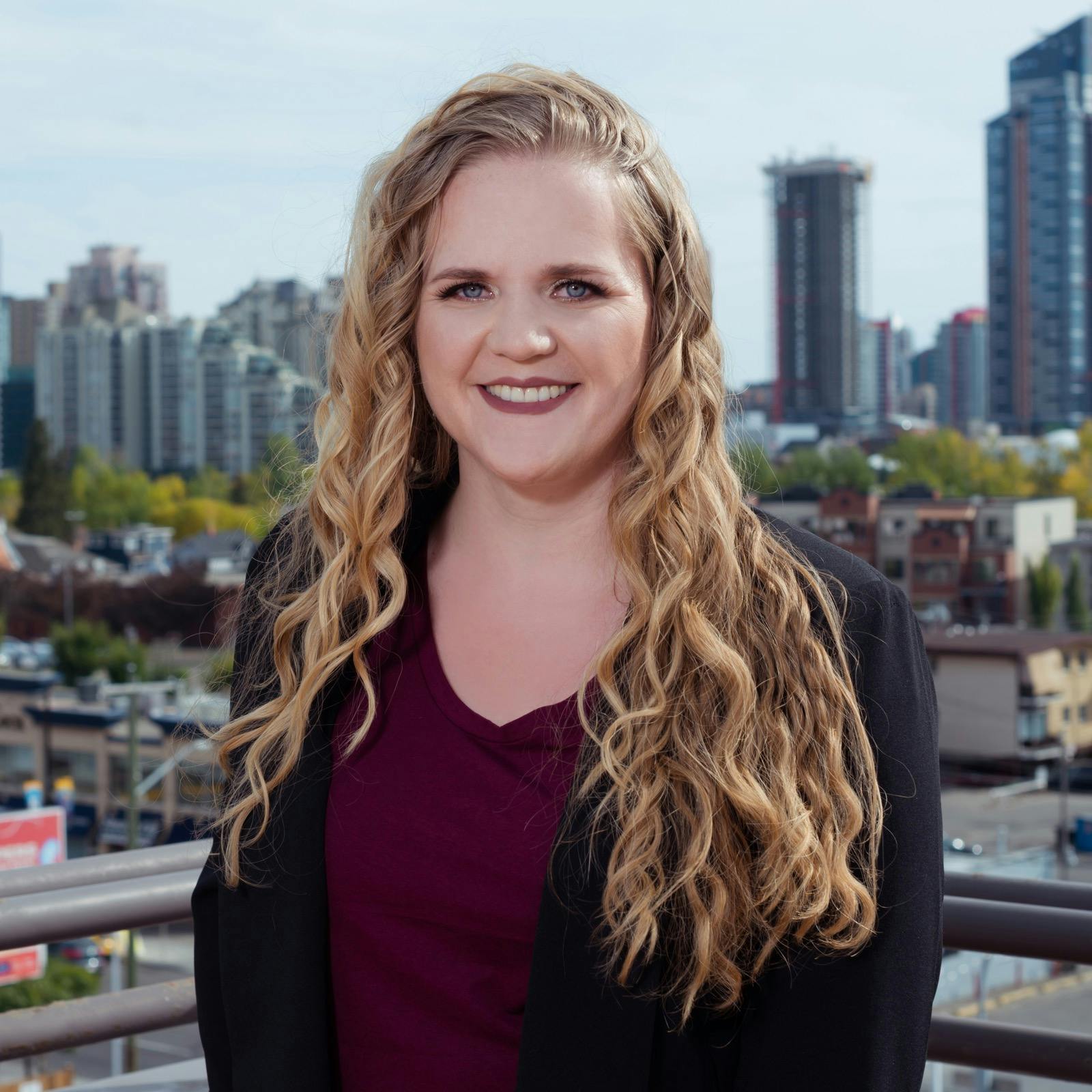In this episode of Let’s Talk Poverty, Jaclyn Silbernagel sits down with members of the Enough for All Lived Experience Network — a group of individuals who have personally experienced poverty in different ways. Together, they discuss the need for a compassionate society, the lasting impacts of intergenerational experiences, and how listening to people’s lived experiences can change how we see poverty and one another. Their diverse voices and perspectives deepen our understanding of poverty.

How do we navigate an increasingly complex world to chart a better path forward?
How can narrative and shared sense-making help communities move toward meaningful change?
In this episode of Let’s Talk Poverty, Jaclyn Silbernagel sits down with Jean Boulton, complexity scientist, author of The Dao of Complexity and Embracing Complexity, and thought leader on systems change. Together, they explore what it means to rethink how the world works, seeing systems as dynamic and relational. They talk about embracing uncertainty, using narrative and shared sense-making to co-create the future, and shifting from quick fixes to deeper systems change in addressing the root causes of challenges like poverty.
At Vibrant Communities Calgary, centring these voices is essential to advancing the work of poverty reduction. These stories and insights are lived expertise, informing how we address the systems that keep poverty in place.
In this episode
- Learn what complexity thinking is and how it challenges traditional, linear ways of solving problems.
- Explore how embracing uncertainty and emergence can help communities and organizations become more resilient and innovative.
- Hear how poverty reduction efforts can benefit from systems thinking by focusing on relationships, feedback loops, and long-term adaptation instead of isolated solutions.
Three key takeaways
- Complexity shows us that even messy, uncertain systems have patterns and opportunities if we pay attention.
- Storytelling helps us understand change by capturing the small, local actions that create big impact.
- Tackling social issues works best when solutions are flexible, context-specific, and informed by shared learning.
About Jean Boulton
Jean Boulton is a leading thinker in the field of complexity science, and you can check out her work at www.embracingcomplexity.com. She combines her early career in physics, her work in organizations and communities, and her study in the social sciences to explore how a complexity perspective helps us to frame and address the issues of our times, including climate change, inequality, geopolitical unrest, and rising populism. Her latest book, The Dao of Complexity, asks what we can do to make sense of what is happening around us, and how that can galvanize action when trying to make a difference in a world of increasing connectivity, polarization, and fragility.
Subscribe to Let's Talk Poverty on Apple Podcasts and Spotify.
Share your thoughts. Have an idea for us to explore or a question for us? Send us a message!
Tags
Attribution

